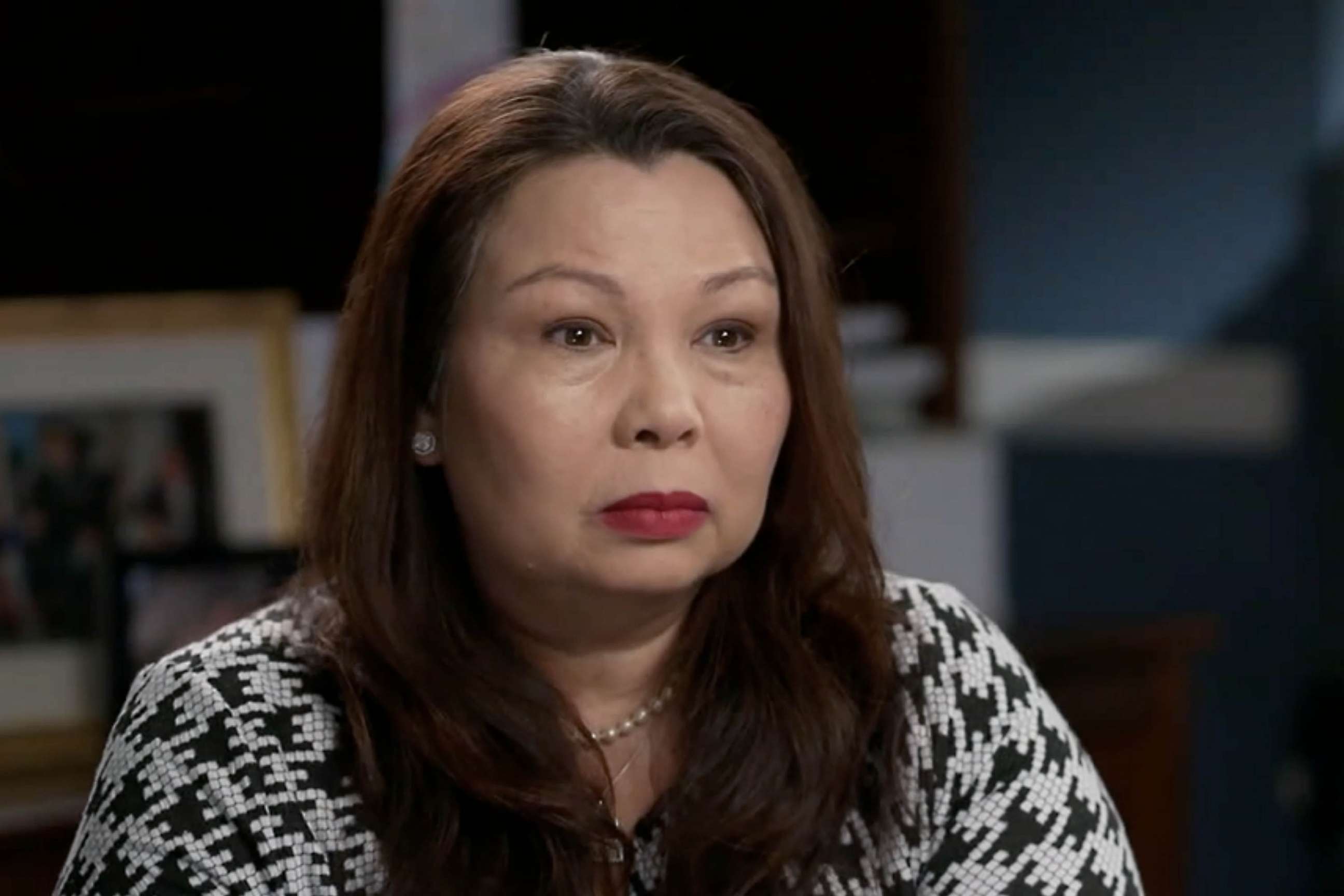Crenshaw, Duckworth look back on military service in Iraq on war's 20th anniversary
"I don't want anyone to feel sorry for us."
Rep. Dan Crenshaw and Sen. Tammy Duckworth are reflecting on their past military service in Iraq on the 20th anniversary of the U.S. invasion there.
Both lawmakers recently sat down with ABC "This Week" co-anchor Martha Raddatz for a segment that aired Sunday, looking back at the fighting and what they've learned.
Crenshaw, who lost an eye serving in Afghanistan but had previously deployed to Iraq, and Duckworth, a former helicopter pilot who lost both of her legs when her aircraft was hit with a rocket-propelled grenade, said they have no regrets over their service.
Though Duckworth, D-Ill., disagreed with the reasoning behind the invasion, she told Raddatz: "I was proud to go because it was my job as a soldier to obey all lawful orders. And this was a lawful order."
"My sacrifice is for the Constitution of the United States, and that is always worth it," Duckworth added.
Crenshaw, R-Texas, echoed those sentiments, saying the invasion of Iraq was "complicated" but that his service was "a time in my life that I don't regret for a second, even with the missing eye."
"I don't want anyone to feel sorry for us. ... I chose to do what I did," he said.

In her interview with Raddatz, Duckworth recalled the emotional toll of being injured as a pilot, when she initially thought she had crashed her helicopter and caused harm to her crew until her family told her otherwise. "I've been fine ever since," she said.
Crenshaw said that while the debate over invading Iraq -- a protracted occupation that began on March 20, 2003, in part as a hunt for "weapons of mass destruction" that were never found -- may never be reconciled, he thought American forces withdrew too soon, possibly creating a vacuum for the Islamic State to fill.
"All of these bad guys we were tracking, they're always in Syria, always on the eastern side of Syria, right on the border. That was their safe haven. And it's the equivalent of Pakistan for the Taliban in Afghanistan," he said.
"Pretty obvious that it's American presence that was keeping them there."

Both Duckworth and Crenshaw said their experience taught them that more planning could help prevent yearslong interventions -- or having to deploy the military in the first place.
"We better know what the parameters of the fight are going to be and what the end goal of the fight will be, so that we're not stuck there for decades with no off ramp," Duckworth said.
"War sucks, which is why you to try to prevent it," Crenshaw said. "You don't prevent it by waiting until the last minute to act."



